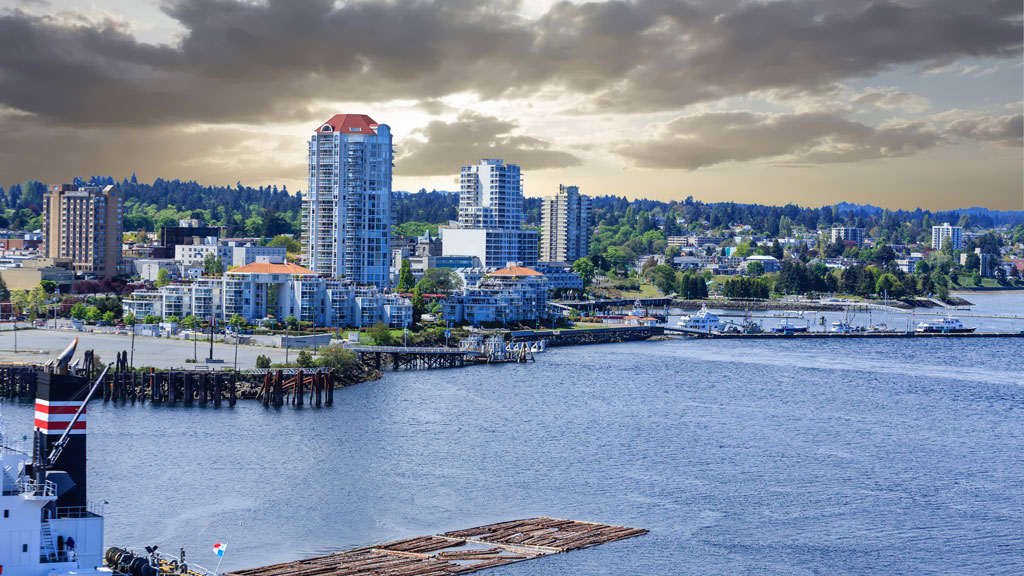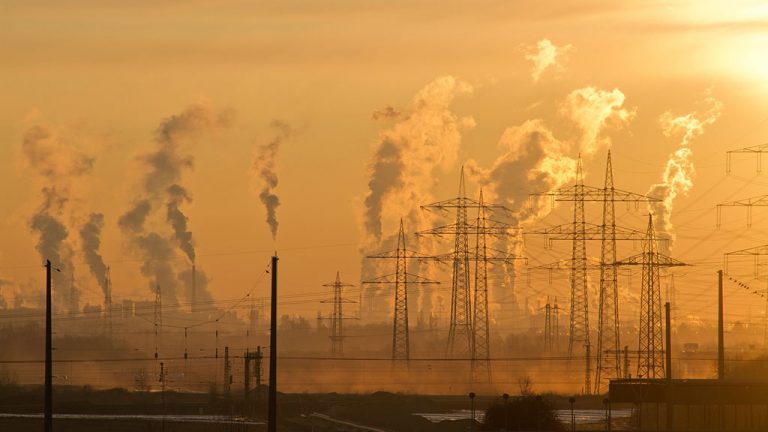Natural gas as a prime heating source in new construction took another hit in mid-October as Nanaimo City Council gave final reading to a building bylaw amendment that will see the municipality move towards more heat pumps and electrical heating in a bid to cut greenhouse gas (GHG) emissions.
The bylaw has an immediate impact and its intent is to implement the BC Zero Carbon Step Code and advance the BC Energy Step Code for BC Building Code Part 3 (complex or more than three-storey) buildings.
The BC Zero Carbon Step Code was only introduced in May 2023 but already a flurry of local governments are using or looking to use the code as a bylaw tool to restrict emissions from new construction.
The BC Energy Step Code, introduced in 2017, encourages local governments to require energy efficiency standards beyond the BC Building Code. In May 2023, the BC Building Code required a 20 per cent better energy efficiency for most new buildings throughout B.C.
Together the two codes are directed at gradually lowering emissions and energy use until new buildings are zero carbon by 2030 and are net-zero energy by 2032.
Nanaimo’s environmental planner David Stewart said now that the bylaw has passed all new building permit applications currently landing at city hall will need to meet performance requirements specific to EL-1 of the zero carbon step code. EL-1 involves measuring or modelling GHG emissions from the proposed building.
But, as of July 1, 2024, new construction, where Part 3 or Part 9 (three storeys or less) of the B.C. Building Code applies and which is within the scope of the Zero Caron Step Code, must be designed and constructed to meet performance requirements specific to the highest level EL-4 zero carbon performance. According to information published by Nanaimo, meeting the standard will require low carbon space heating and cooling and water heating.
Stewart said the Nanaimo ban, though, does not impact facilities such as day care operations and restaurants.
As well, starting in January 2026, all new Part 3 building applications will need to meet Step 3 of the BC Energy Step Code.
The District of Saanich and City of Victoria worked collaboratively to become the first municipalities to implement the emissions code. As of May 2023, both Saanich and Victoria have required all new buildings to meet the EL-1 measure-only level. Part 9 buildings in both cities will have to meet the top rung of compliance EL-4 starting Nov. 1, while Part 3 residential buildings (four to six storeys) will need to meet EL-4 from July 1, 2024 forward and those falling outside the scope but are still Part 3 buildings will need to meet EL-4 from November 2024 forward.
“We are following in their footsteps,” said Stewart as Nanaimo becomes Vancouver Island’s third municipality to ban natural gas as a prime heating source in new construction.
Nanaimo’s bylaw amendment, which squeaked by on one vote, has drawn criticism from suppliers and those involved in the gas industry. The Canadian Energy Centre, an organization representing the energy sector and backed by Alberta tax dollars, has been critical of the Nanaimo decision.
Fireplace supplier Chris Bowen, general manager of Pioneer Fireplace, said natural gas fireplaces have been traditionally used as a secondary heating source during inclement weather resulting in power outages on Vancouver Island.
The new bylaw does not ban natural gas fireplaces, but will make it expensive to install one. Large utility companies have covered the costs of installing a gas line to complexes and subdivisions as they recouped the costs over years of utility use.
“But, it doesn’t pay to run a line for just a fireplace,” he said, adding the cost is pushed back on the developer and will be passed onto the buyer.
Bowen, who sees 30 per cent of his sales in new construction, said heat pumps are expensive to install and baseboard electric heating is expensive for the consumer.
Other municipalities that have taken steps to combat emissions from new construction include Whistler, North Vancouver, West Vancouver, Squamish, Richmond and Port Coquitlam, although Port Coquitlam in September reined in an ambitious energy implementation plan to give builders time to adjust.
The Resort Municipality of Whistler, starting on Jan. 1, 2024 will require Step 4 of the BC Energy Step Code plus a strong carbon performance carbon code level for all Part 9 homes; and Step 3 with a strong carbon performance rating for Part 3 residential buildings. Whistler will progress to a zero carbon performance by 2026.
Prior to B.C. introducing the Zero Carbon Code, a number of Lower Mainland municipalities developed low carbon energy system requirements to be aligned with the new carbon code. Richmond, North Vancouver and West Vancouver have developed a policy that allows developers to choose to either meet the top rung of the Energy Step Code requirement or meet a lower Step Code requirement but a set emissions standard.









Recent Comments
comments for this post are closed